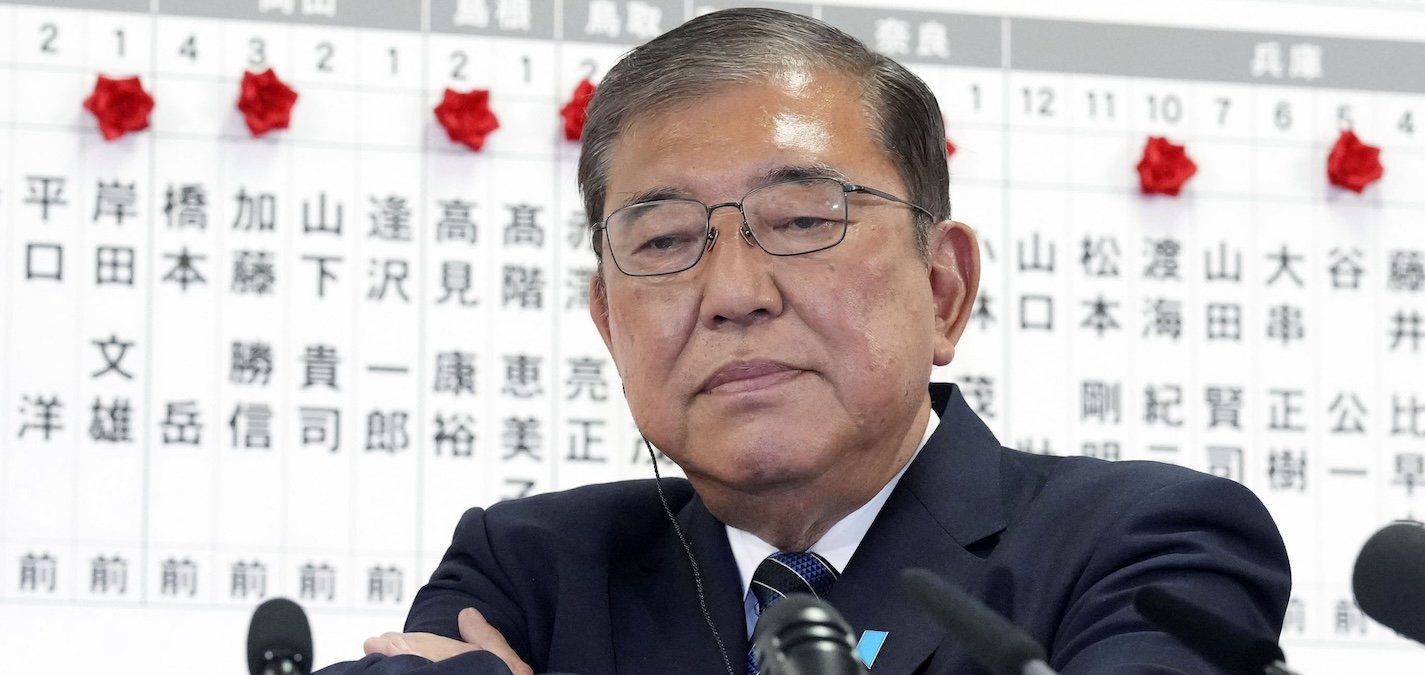Japanese Prime Minister Shigeru Ishiba is pictured during a media interview at the headquarters of his ruling Liberal Democratic Party in Tokyo on Oct. 27, 2024.
Japan’s Liberal Democratic Party and coalition partner Komeito lost their parliamentary majority on Sunday in an election dominated by economic and ethical issues.
“The LDP got thumped,” said David Boling, Eurasia Group's Japan director, noting that a recent political fundraising corruption scandal was its downfall. “It tried to sweep the political fundraising scandal under the rug, but the voters weren’t having it.”
The LDP now holds 191 seats in the 465-seat lower house, its worst performance since 2009. Komeito holds 24, while the main opposition party, the Constitutional Democratic Party of Japan, has 148, and two smaller parties, the Democratic Party for the People and Japan Innovation Party won 28 and 38 seats respectively – making them possible partners in the new government.
Foreign policy feud? Komeito has resisted the LDP’s push to abandon Japan’s post-World War II pacifism, opposing moves to double military spending, acquire longer-range weapons, and lift restrictions on military exports. In contrast, the JIP is led by Donald Trump-admirer Nobuyuki Baba and favors increased defense spending and revising Japan’s constitution to boost military engagement.
